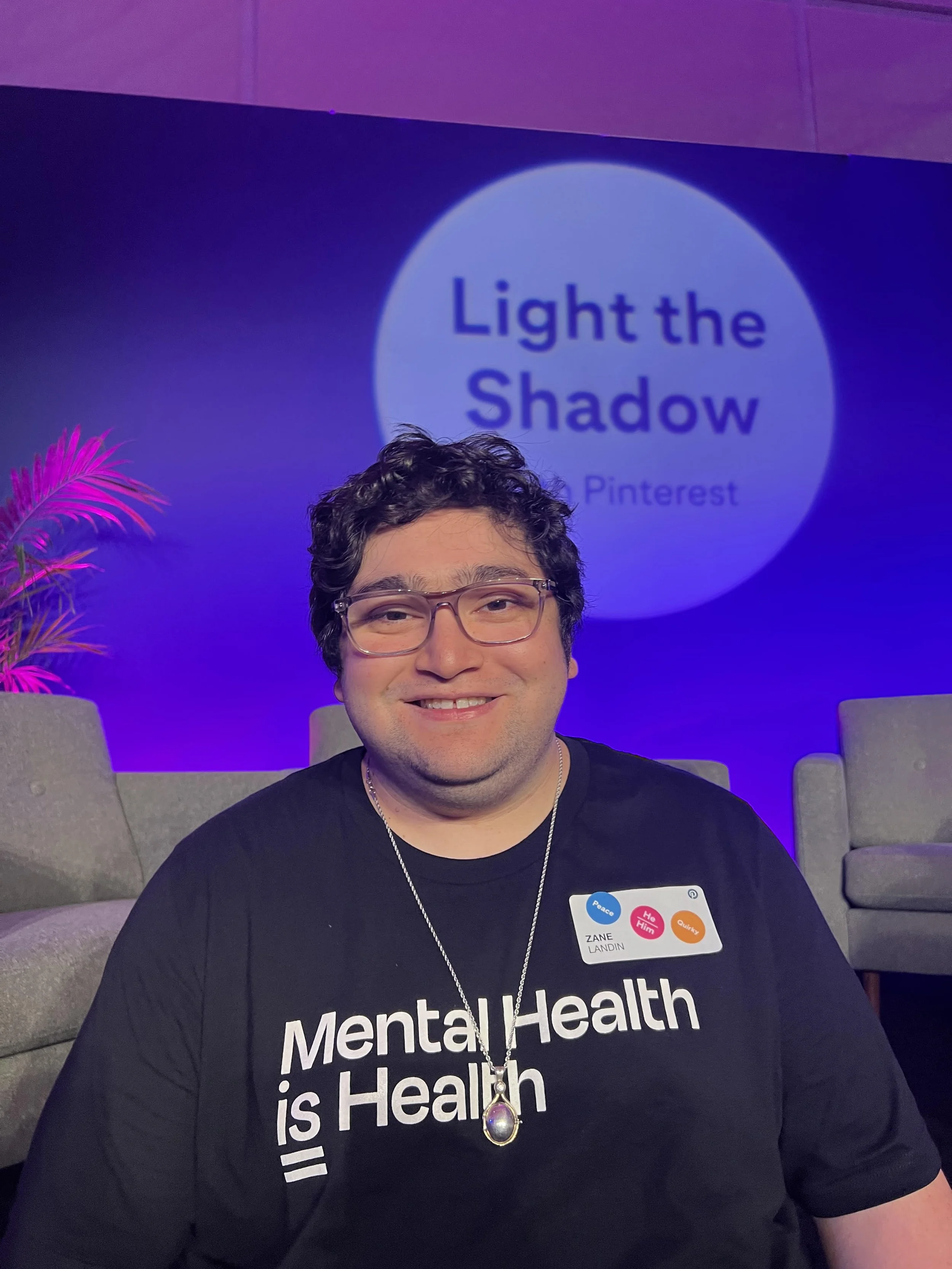Spreading Positive Vibes with Zane Landin
Zane Landin has plenty of good stories. He’s interned at USAID, NASA, and General Motors. He identifies as Hispanic, Queer, and Disabled and is a mental health and disability advocate, queer rights activist, entrepreneur, and positive change maker. He’s put all of those life experiences into PositiveVibes Magazine, a digital magazine dedicated to telling authentic stories about mental health, wellness, and inspiration.
Zane also attended the first-ever Mental Health Youth Action Forum in Washington D.C., one of just 30 young advocates across the country who were selected to advocate for mental health.
Good People, Cool Things spoke with Zane about his passion for storytelling, why mental health is more important than ever, and how organizations can be more inclusive.
Why did you start PositiveVibes Magazine?
I started PositiveVibes Magazine because I wanted to see a platform that took an inclusive, intentional approach to storytelling about mental health communities. The digital magazine was born from a school project, but I decided to take it further because it was something I wanted to see. The COVID-19 pandemic disrupted the world, and I wanted to see the mainstream media tell more thoughtful, impactful stories.
Since starting in May 2020, we have released many stories of meaningful individuals positively shifting the world. Our stories have reached thousands of people from over 100 countries, and we continue to grow. Now is a significant time to adopt positive storytelling. Only relying on negative stories has prevailed for far too long.
What makes for a good story?
Traditionally, a good story needs to be timely and compelling. But what I learned operating PositiveVibes Magazine is that the authentic truth inspires people. Everyone has a prosperous truth behind their story—the homeless woman who's struggled her whole life, the misunderstood teenager, and even the multi-billionaire CEO.
Many people worldwide make a difference in their communities, but we rarely hear their stories. I've listened to genuine humbled heroes in our society who don't believe they need shared stories. We need to see more of them because the world is convincingly dark and drowns the light. These stories serve as vessels to cultivate peoples' inspiration and enlightenment.
When someone sees someone they resonate with within an article, story, or movie, it makes them feel validated and less alone. Representation is the key to transforming stories from being exclusionary. As an advocate, storytelling is essential activism, and people would be surprised how captivating positive storytelling can be.
What do people still seem to misunderstand about mental health and/or disability?
As someone with experience as a disabled person and an advocate, one of the most misunderstood elements I have seen regarding these communities is the inability to treat them as people. People with disabilities and mental health conditions are people trying to live their lives. They just need additional support, medical care, workplace accommodations, or someone to be there for them. Everyone has individual needs, and we must be aware of those accommodations.
You spoke at the Mental Health Youth Action Forum — what did you learn from that?
The Mental Health Youth Action Forum was an unbelievable experience, and I connected with some of the country's most influential mental health advocates. I met with Selena Gomez, Dr. Biden, Dr. Murthy, and President Joe Biden.
I grew as a mental health advocate from the brilliant voices, but the most important lesson I learned happened after the forum. There were times throughout the forum I felt depressed and experienced 'Imposter Syndrome.' I have always needed help celebrating my wins and recognizing how far I've come. Before, I never thought I would go places like the White House or work at NASA. They always seemed out of my reach, but the opportunity is there. The lesson is to believe in yourself.
For some, chance finds them, but for the rest of us, we must be diligent in taking advantage of opportunities. We don't want to lose them. My advice for people to beat their inner shadows is to tell themselves it is possible. Don't let the voice in your head stop you from taking a chance. Surround yourself with people who can make it transpire. I wouldn't be where I am without the people who have crossed my path. Every person we meet serves a guiding purpose, and I cherish that sentiment. Everywhere I go, I try to hold onto that belief, even when it feels impossible to.
What's something everyone can do to be more inclusive?
There is nothing more powerful than the art of listening. A true testament to someone is not what they say but their ability to listen. For some, it can be challenging to articulate what they need at that moment. They may need someone near them to support them. Some people love advising others, but sometimes, their advice might hinder them more than help.
This is especially true in the workplace. Suppose you want to create a more inclusive organization; start by listening to your most important audience–employees. Many organizations fail to listen to their employees and stakeholders and assume their organization is inclusive and welcoming. If you want to see change happen in your organization, genuinely support your employees. It would be best if you always appreciated feedback because it can help sustain any entity and help it grow.
What's next for you?
I stand by my mission to always be a culturally competent storyteller and an advocate for others. Aside from that, I landed my first full-time entry-level job at the National Geographic Society as an Internal Communications Specialist. I am moving to Washington, D.C., this year. Initially, I was reluctant at first because my fears clouded my judgment. I almost let the voice inside my head dictate my destiny, but I didn't want to give up on myself or my potential. We are the main thing keeping us from evolving and becoming magnificent.


